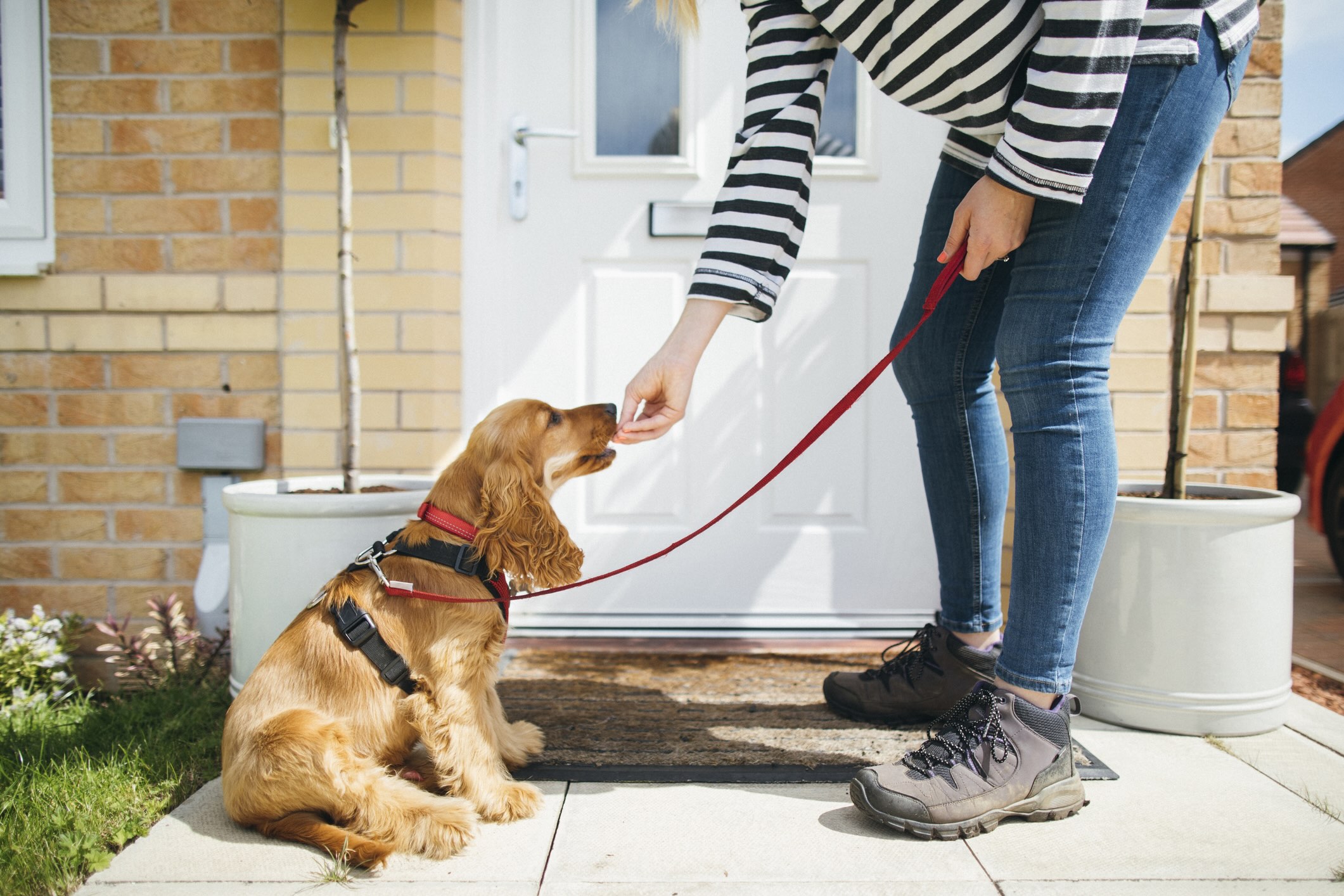How To Bond With Your Dog
Adobe Stock/Dmytro Hai
Several scientific studies have documented the benefits of the human-animal bond—when we add a pet into our lives, we improve our physical and mental health. So, when you bring home a new dog, it’s important to foster that bond from the beginning.
Key Takeaways
- Bonding with your dog is essential for a positive long-term relationship, and it can improve mental and physical wellbeing.
- Understanding your dog’s body language and using positive reinforcement techniques are important steps to building trust and communication.
- Routine activities like grooming, walking, and playing can strengthen your relationship with your dog.
- Prioritize reward-based interactions to create a safe and supportive environment for your dog.
Why Is Bonding With Your Dog Important?
If you’re looking to add companionship and love to your life, it’s important to form a connection with your dog.
Dogs are a years-long commitment—as much as 15 years or more, depending on how long your dog lives. When you take care of a beloved member of the family, it brings joy and provides a sense of accomplishment and satisfaction.
If you don’t bond with the dog, then the dog will add to caregiver burden. Caring for a dog you don’t like increases stress and may foster feelings of resentment, dissatisfaction, and unhappiness.
7 Ways To Bond With Your Dog
1. Learn Your Dog’s Body Language
The best way to build a strong bond with your dog is by learning to read their facial expressions and body language. Once a pet parent learns what their dog is trying to say, the door to improved understanding and communication opens.
Here are some basics of dog body language:
-
A confident and alert dog holds their ears forward, head up, and tail up.
-
When a dog has their ears turned to the side, head lowered, avoids eye contact, and has their tail lowered or tucked between their legs, they are conveying a message of fear, anxiety, and potentially stress.
Similar to body language is vocalization. Vocalizations such as growling and barking shouldn’t immediately be considered aggressive behavior. They are behaviors on a continuum of communication.
Dogs may bark in greeting, excitement, or caution. Growling should be interpreted as an indication of the dog’s discomfort, and the pet parent should stop what they are doing and give the dog more space.
2. Use Positive Reinforcement

Instead of assuming your dog naturally understands our language and can read our mind, pet parents should use positive reinforcement training methods to teach more desirable behaviors.
Positive reinforcement enhances the human-animal bond by fostering a common language that pet parents can use to interact with their dog. With it, a dog learns to listen to the pet parent and perform the behavioral cues they were taught. The use of positive reinforcement training methods builds up a dog’s confidence and trust in their pet parents.
Conversely, using punitive techniques and tools, such as spraying your dog with water when they bark, can increase a dog’s fear and anxiety and even lead to aggressive behavior toward the pet parent and family members.
Instead of punishing your dog for bad behavior, teach them behaviors you want them to do by using rewards like training treats, favorite dog toys, and praise.
3. Groom Your Dog
Grooming a dog can strengthen the human-animal bond if it’s done right and makes your dog feel good. For example, brushing your dog’s coat two or three times a week removes dirt, debris, and loose fur, and it can be very soothing to many dogs.
However, many dogs may not instinctively like to be groomed. We can reinforce grooming as a good experience by pairing it with food and praise; start with providing a treat for each brushstroke.
There are also certain times when grooming can hurt our dogs, such as when we brush out mats or burrs, or when we trim our dog’s nails too short. In these situations, it’s best to work slowly and be more cautious. Take little breaks between short grooming sessions and pair the procedure with high-value treats.
It also may be best to take your dog to the veterinarian or a professional groomer in these situations.
4. Create a Routine
A routine provides stability and consistency, which can reduce anxiety in dogs. With a routine, a dog knows what to expect at certain times of the day, whether it’s going on a walk or when you’re coming home from work.
5. Go on Walks
Walks are great for both your and your dog’s mental and physical health. It’s an activity that keeps both human and dog physically fit, and it also provides mental stimulation for both parties. In short, it’s an enjoyable activity for you to do together and bond over.
6. Schedule Regular Playtime
Playing fetch or tug with your dog provides a great opportunity to bond, exercise, and work on some basic obedience cues, such as drop it.
There’s no better reward than seeing how excited our dogs become during play, or afterward when they’re tired and content.
7. Try a Dog Sport

Another opportunity to strengthen the human-animal bond is participating in dog sports, such as agility, herding, scent work, or Barn Hunt. These are great activities to work on improving physical fitness, mental enrichment, and teamwork.
Dog sports allow both pet parent and dog to work on achievable goals, such as getting a title in their chosen sport. Some may even aspire to work toward getting enough points to make it to the national championship.
When people choose to open their hearts and home to a dog, they choose to embrace a life with a loving and loyal companion. Like most relationships, there is some work that’s needed in order for both parties to build trust and love in each other, but the result is worth the effort.
